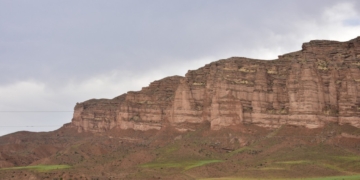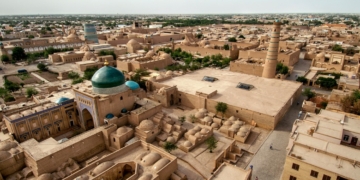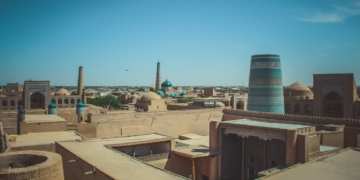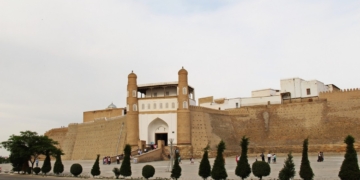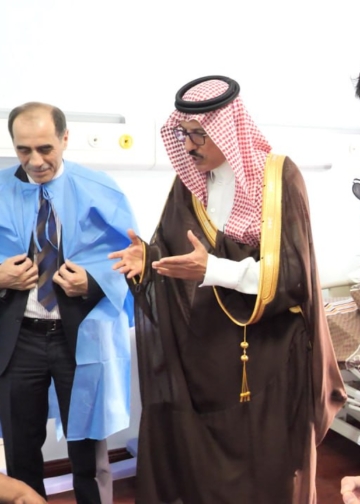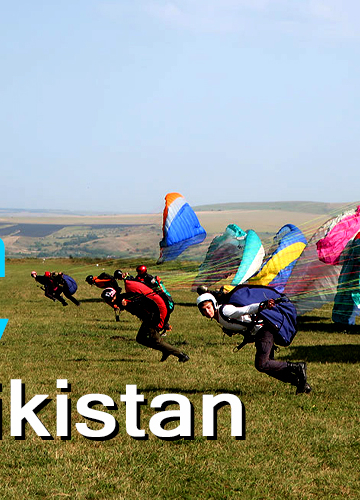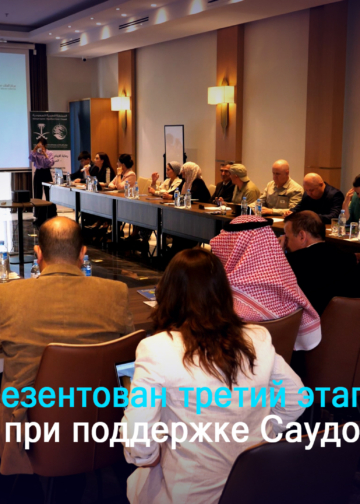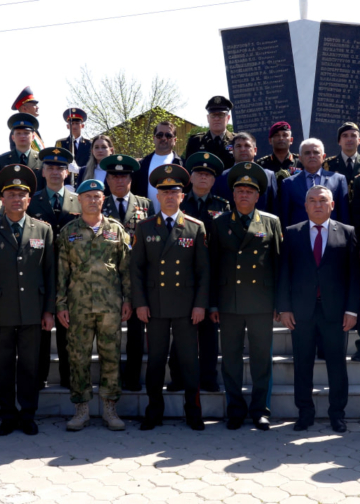id: 130783
date: 11/20/2007 9:50
refid: 07BEIJING7173
origin: Embassy Beijing
classification: CONFIDENTIAL
destination: 06BEIJING11754|07BEIJING6233
header:
VZCZCXRO0892
OO RUEHCN RUEHGH RUEHVC
DE RUEHBJ #7173 3240950
ZNY CCCCC ZZH
O 200950Z NOV 07
FM AMEMBASSY BEIJING
TO RUEHC/SECSTATE WASHDC IMMEDIATE 3554
INFO RUEHOO/CHINA POSTS COLLECTIVE
RUEHAK/AMEMBASSY ANKARA 0358
RUEHTA/AMEMBASSY ASTANA 0035
RUEHRL/AMEMBASSY BERLIN 1635
RUEHEK/AMEMBASSY BISHKEK 1320
RUEHTA/AMEMBASSY DUSHANBE
RUEHIL/AMEMBASSY ISLAMABAD 6630
RUEHBUL/AMEMBASSY KABUL 0370
RUEHMR/AMEMBASSY MASERU 0023
RUEHNT/AMEMBASSY TASHKENT 1145
—————— header ends —————-
C O N F I D E N T I A L BEIJING 007173
SIPDIS
SIPDIS
E.O. 12958: DECL: 11/20/2032
TAGS: PTER, OREP, CASC, PGOV, KIRF, PK, KG, AF, KZ, CH, TI,
UZ, TU, GM
SUBJECT: XINJIANG: CONTACT SAYS DEMONSTRATION, ARRESTS
HIGHLIGHT SPREAD OF HIZB UT-TAHRIR INTO NORTHERN XINJIANG
REF: A. BEIJING 6233
B. 06 BEIJING 11754
C. FBIS/OSC CPP20020708000111
D. FBIS/OSC CPP20020705000143
Classified By: Deputy Political Section Chief Ben Moeling. Reasons 1.4
(b/d).
1. (C) Summary: A three-day protest in Xinjiang in September
highlighted the presence in China of Hizb ut-Tahrir al-Islami
(the Islamic Party of Liberation), according to a
well-connected Muslim contact.
The protest was especially
significant because it occurred in the more ethnically Han
northern Xinjiang, not far from Xinjiang’s capital of Urumqi,
and because it had an effect on food prices. At least one
overseas Uighur group disputes the existence of Hizb
ut-Tahrir in China and claims Chinese authorities use it as a
pretext to persecute Uighurs. End
Summary.
2. (C) A three-day protest (kangyi) on September 9-11 in the
city of Turpan in northern Xinjiang Uighur Autonomous Region
(XUAR) ended with the arrest of an unknown number of
protesters, who are suspected of involvement with Hizb
ut-Tahrir al-Islami (Islamic Party of Liberation). Ehmetjan
Hesen (strictly protect), member of the XUAR People’s
Political Consultative Conference (PPCC), standing committee
member of the Xinjiang Islamic Association and professor at
the official training center for Xinjiang imams, told Poloff
that he had seen an internal (neibu) Government report
describing the September incident.
According to Hesen’s
summary of the report, the son of a manager of a major
slaughterhouse in Turpan was arrested under suspicion of Hizb
ut-Tahrir membership. The
manager, allegedly the leader of a
Hizb ut-Tahrir cell in Turpan, organized with other Hizb
ut-Tahrir members to close his slaughterhouse business in
protest of his son’s arrest. The
closure had enough of an
effect on the local food supply to send meat prices soaring
for three days and ended with the Government arresting the
protesters, Hesen said.
3. (C) Xinjiang Academy of Social Sciences terrorism expert
Ma Pinyan told Poloff that Hizb ut-Tahrir’s influence is on
the rise in the predominantly Uighur southern Xinjiang. He
emphasized the great challenge that such «radical» groups
pose to the Government (refs A, B).
Hesen said the Turpan
incident highlights the spread of Hizb ut-Tahrir into
northern Xinjiang, a traditionally Uighur area that has seen
its ethnic balance tilted by a significant influx of Han
Chinese. According to official
statistics, 70.8 percent of
Turpan’s population is Uighur, but Hesen noted that reports
also llege the discovery of Hizb ut-Tahrir activity n the
northern Xinjiang city of Hami (called «Qomul» in Uighur),
where Uighurs constitute only 22 percent of the population.
(Note: Founded in Jerusalem in 1953, Hizb ut-Tahrir seeks to
create a unified Islamic state.)
Hesen said the organization
is a threat to the Chinese Government because it attempts to
use religion to accomplish political goals.
4. (C) This is not the first report of Hizb ut-Tahrir
infiltration into northern Xinjiang.
A Xinjiang news report
from May 2002 claims Hizb ut-Tahrir had at that time spread
to ten prefectures and cities, including northern Xinjiang’s
Yili, Urumqi and Tacheng (ref C).
A Hami City news site
boasts of the arrest of two suspected Hizb ut-Tahrir members
in 2005 and, more recently, in February 2007 Hami Party
Secretary Guo Lianshan called on government departments to
SIPDIS
«strike hard» against the «religious extremist
group» Hizb
ut-Tahrir.
5. (C) COMMENT: An incident the size of the one described by
Hesen, if truly caused by Hizb ut-Tahrir followers, would be
of serious concern to the Government because it would signify
both a bold challenge to a Xinjiang municipal government and
the growth of Hizb ut-Tahrir across Xinjiang. (NOTE: Hizb
ut-Tahrir’s existence in Xinjiang is contested by at least
one overseas Uighur group, which accuses China of creating
the threat as an excuse to persecute religious persons and
make «groundless» arrests (ref D).)
RANDT
=======================CABLE ENDS============================
id: 130938
date: 11/21/2007 3:10
refid: 07DUSHANBE1665
origin: Embassy Dushanbe
classification: CONFIDENTIAL
destination:
header:
VZCZCXRO1770
PP RUEHDBU
DE RUEHDBU #1665/01 3250310
ZNY CCCCC ZZH
P 210310Z NOV 07
FM AMEMBASSY DUSHANBE
TO RUEHC/SECSTATE WASHDC PRIORITY 1375
INFO RUEHDBU/AMEMBASSY DUSHANBE 3291
RUCNCIS/CIS COLLECTIVE
RUEHBUL/AMEMBASSY KABUL PRIORITY 2322
RUEHNE/AMEMBASSY NEW DELHI PRIORITY 2241
RUEHIL/AMEMBASSY ISLAMABAD PRIORITY 2296
RUEHBJ/AMEMBASSY BEIJING PRIORITY 2014
RUEAIIA/CIA WASHDC
RUEKJCS/SECDEF WASHINGTON DC//USDP/ISA/NESA//
—————— header ends —————-
C O N F I D E N T I A L SECTION 01 OF 02 DUSHANBE 001665
SIPDIS
SIPDIS DEPARTMENT FOR SCA/CEN
E.O. 12958: DECL: 11/19/2017
TAGS: PREL, PHUM, TI
SUBJECT: NATIONAL DEMOCRATIC INSTITUTE TAJIKISTAN DIRECTOR GRANTED
SIX MONTH VISA; NOT OUT OF THE WOODS YET
REF: A: SECSTATE 149413, B: DUSHANBE 1650
CLASSIFIED BY: Tom Hushek, Deputy Chief of Mission, U.S. Embassy
Dushanbe, STATE.
REASON: 1.4 (b), (d)
1. (C) Summary: The Tajikistan Director of the National
Democratic Institute has been issued a six-month, multiple entry
visa, after having received short-term visas for several months.
The six-month visa was a
prerequisite for obtaining
registration for the National Democratic Institute. Embassy
pressed the Tajik government repeatedly for issuance of such a
visa, and this news represents a success for us (Reftel A).
However, new complications in the registration process for
non-governmental organizations may still make it impossible for
the National Democratic Institute to register and begin
programming in Tajikistan. The
Tajik State Security Committee
continues to monitor and harass Institute employees. End
Summary.
One Hurdle Crossed, and Another Appears
===============================
2. (C) Harry Bader, the American Country Director for the
National Democratic Institute, informed us on November 16 that
he had received a six-month multiple entry visa the day before.
This followed several months of extremely limited validity visas
issued to him, despite repeated demarches by the embassy.
Possession of the longer-term visa is a requirement for the
Tajik government to grant official registration to foreign
non-governmental organizations, and the repeated refusal of the
Government to grant Mr. Bader this visa constituted a de facto
rejection of registration for the National Democratic Institute.
Without official registration,
non-governmental organizations
cannot function or conduct programs in Tajikistan. The National
Democratic Institute has been present in Tajikistan since
October 2002, but without registration since late 2004, and so
unable to conduct most activities it had planned. The previous
Director was deported for illegal conduct unrelated to his
duties with the National Democratic Institute, further
complicating the organization’s position here.
3. (C) The National Democratic Institute will now begin the
registration process, Mr. Bader told us.
However, Mr. Bader
said that he is concerned there are yet other procedural or
technical grounds for Tajik officials to deny registration. For
instance, he had learned in the past few days of a Tajik
government requirement that registration application packages,
to be accepted by the Ministry of Foreign Affairs for
«legalization» before being sent to the Ministry of Justice
for
registration, must include full certified and notarized copies
in Tajik and Russian. Given the
additional requirement that
non-governmental organizations get their registration packages
through the Ministry of Foreign Affairs and on to the Ministry
of Justice within 30 days of a vote by their directors to seek
registration, Mr. Bader thought it unlikely that
non-governmental organizations could complete the process within
the 30 day window. He suggested
that this requirement from the
Government was intended to give Tajik officials an excuse to
deny registration to non-governmental organizations it
disfavored. Bader estimated that
if all international courier
services worked perfectly, along with speedy translation and
certification of lengthy documentation packages, the National
Democratic Institute would be able to complete the application
process in 29 days; but he wasn’t betting on this.
Security Service Keeps the Pressure On
==============================
4. (C) Mr. Bader also reported to us that on November 14, the
day before his visa was issued, an employee of the State
Security Committee telephoned the National Democratic
Institute’s Tajik Program Officer three times and questioned him
about Mr. Bader’s connection to the November 14 bombing in
Dushanbe which killed one person (Reftel B). The Security
Committee employee reportedly asked the Program Officer what Mr.
Bader’s reaction had been on hearing about the bombing («did he
look alarmed, excited, or pleased?»), and said that «people
NDI
works with» were associated with «those who made the
bomb.» The
Security Committee employee also asked whether Bader had
received «subversive training» during a previous assignment in
Ukraine, questioned the Tajik Program Officer’s loyalty to
Tajikistan, and suggested various aspects of the National
Democratic Institute’s activities in Tajikistan were illegal.
Mr. Bader commented to the embassy that these sorts of questions
DUSHANBE 00001665 002 OF 002
were the norm in State Security’s periodic contacts with
employees of the National Democratic Institute in Tajikistan,
and he did not think that this incident represented an
intensification of Sate Security pressure on his organization.
He noted that the State Security employee who made this latest
approach, and who usually approached the Institute, had recently
participated in an OSCE-sponsored training program in France.
Bader said the agent’s name was known to Institute employees,
and volunteered to provide it to embassy.
Comment: More Battles Ahead
======================
5. (C) Embassy is very pleased by the Tajik government’s
decision to grant the required long-term visa to Mr. Bader, and
will convey our thanks to the Ministry of Foreign Affairs. The
repeated refusal by the Ministry of Foreign Affairs to grant a
long-term visa to Mr. Bader, shielded the Security Committee and
the Ministry of Justice from any criticism that they were
refusing registration to the National Democratic Institute, and
the Embassy had urged the Ministry of Foreign Affairs to stop
carrying the burden for other agencies which were hostile to the
National Democratic Institute’s presence in Tajikistan. However
good this news is, the burdensome requirement for certified
translations of registration packages makes clear that the Tajik
government can produce more obstacles in the way of registration
of foreign non-governmental organizations. Today’s news on the
visa represents a step toward another battle. End Comment.
HUSHEK
=======================CABLE ENDS============================
id: 131300
date: 11/23/2007 12:16
refid: 07DUSHANBE1680
origin: Embassy Dushanbe
classification: CONFIDENTIAL
destination: 07DUSHANBE1423
header:
VZCZCXRO3834
RR RUEHDBU
DE RUEHDBU #1680/01 3271216
ZNY CCCCC ZZH
R 231216Z NOV 07
FM AMEMBASSY DUSHANBE
INFO RHMFISS/USCINCSOC MACDILL AFB FL
RUCNCIS/CIS COLLECTIVE
RUEAIIA/CIA WASHDC
RHEFDHP/DIA DHP-1 WASHINGTON DC
RUEHNE/AMEMBASSY NEW DELHI 2243
RUEHBUL/AMEMBASSY KABUL 2324
RUEHIL/AMEMBASSY ISLAMABAD 2298
RUEHBJ/AMEMBASSY BEIJING 2016
RUEHDBU/AMEMBASSY DUSHANBE 3308
—————— header ends —————-
C O N F I D E N T I A L SECTION 01 OF 02 DUSHANBE 001680
SIPDIS
SIPDIS
DEPARTMENT FOR SCA/CEN
E.O. 12958: DECL: 11/21/2017
TAGS: PREL, PGOV, TI
SUBJECT: ALL THE KING’S MEN
REF: DUSHANBE 1423
CLASSIFIED BY: Tom Hushek, Charge d’Affaires, a.i., Embassy
Dushanbe, Department of State.
REASON: 1.4 (b), (d)
1. (C) Summary: One year after President Rahmon’s re-election,
Tajiks from the Kulyob region hold approximately two-thirds of
the top positions in government.
While this consolidation of
power has been ongoing for several years, some in President
Rahmon’s party have started to question whether his top advisors
are serving the country — and the President — well. End summary.
Consolidation
==========
2. (C) Prior to his re-election in November 2006, President
Rahmon appointed Tajiks from Kulyob, the President’s home
district, to a disproportionately high number of positions in
the government. During the year
since his reelection, the
President has continued to consolidate his hold over the
government by ensuring that Kulyobis hold most of the top
ministerial, law enforcement, and revenue-related positions.
Kulyobis now head approximately two-thirds of all of the state
institutions, including the Ministries of Interior, Foreign
Affairs, Finance, Defense, and Energy (the President’s father in
law, no less), and the State Committees on National Security and
on Investment. Kulyobis head the
prosecutorial service, the
Supreme Court, and the Supreme Economic Court. Fourteen of
Tajikistan’s 20 ambassadors are from Kulyob.
3. (C) President Rahmon has increasingly turned to members of
his own family and Tajiks from his home region of Danghara
(which is in Kulyob District) to fill sensitive government
positions. The State Economic
Advisor, the Chief of the
Presidential Administration, and State Advisor on Human
Resources, are Dangharans. One of
the President’s sons-in-law
is the Deputy Minister of Finance.
4. (C) In the Ministry the embassy knows best, Foreign Affairs,
the pattern of regional favoritism is striking. Several
ambassadorial positions have gone to Kulyobis: Brussels, Moscow,
Berlin, and Astana. New
ambassadors to the United States,
Japan, and the OSCE are from Danghara, the President’s home
village. (The new Ambassador to
Japan was previously the
Chairman of the Committee on Youth, Sports, and Tourism). Over
the course of the year, President Rahmon has placed two of his
daughters in the Ministry of Foreign Affairs, one as the Chief
of Consular Affairs (in charge of visa decisions for troublesome
foreigners), the other in the Department for International
Organizations.
Poor Political Management
====================
5. (C) It is commonly reported in our discussions with Tajik
interlocutors, even those close to the president, that Rahmon is
strengthening his position through nepotism, and that he has not
focused on appointing competent managers to key governmental
posts. Some observers in
Tajikistan have accused government
officials of being poor political managers who are out of touch
with reality (reftel). This
criticism is based on what they see
as an ill-guided policy on religion, poor management of the
economy, and failure to control corruption.
6. (C) Members of the President’s own political party, the
People’s Democratic Party of Tajikistan, have begun commenting
to embassy officers that the President’s inner circle prevents
him from effectively managing the country. In a late-October
meeting, Muso Asozoda, head of the party’s Dushanbe office, told
PolOff that the President has surrounded himself with «people
who do not tell him the truth,» and that President Rahmon and
his advisors have become «divorced from reality.» He said the
President had attempted to take control of too many aspects of
the government, and that he «cannot possibly fulfill all of the
commitments he has made.»
7. (C) Asozoda said that the government’s economic policy had
failed on several fronts, and that corruption remains a major
problem. However, his views were
not totally contrary to the
party line. Regarding the
government’s increasingly restrictive
religious policy, Asozoda said that the government can justly
control religious life in Tajikistan.
PolOff asked Asozoda why
DUSHANBE 00001680 002 OF 002
so many officials refused to speak with international
representatives about the restrictions, and why there had been
so little transparency surrounding the new draft law on
religion. Asozoda suggested that
government officials are
afraid of «making a mistake» by saying the wrong thing.
Changes, But Not Soon
==================
8. (C) Asozoda said that many in the party recognize that
President Rahmon has not surrounded himself with competent
advisors, and predicted that changes would be made to the
President’s inner circle. He cautioned, however, that these
changes would not come soon.
Recent news articles reported that
Prime Minister Oqil Oqilov will have to step down in February
when he reaches the mandatory retirement age of 63 years. Many
of the contenders, according to the press, are Kulyobis.
9. (C) Comment: Asozoda’s comments are consistent with our
observations that Tajiks are increasingly discontent with the
direction in which the country is going on a range of issues.
The economic situation for most Tajiks has deteriorated over the
past year, especially as the cost of basic foodstuffs has more
than doubled in the last few months.
While we have heard
criticism from government supporters, it is rare to hear
criticism in such a direct manner against President Rahmon’s
inner circle from a member of the President’s party. End
Comment.
HUSHEK
=======================CABLE ENDS============================
id: 131314
date: 11/23/2007 13:09
refid: 07DUSHANBE1684
origin: Embassy Dushanbe
classification: UNCLASSIFIED//FOR OFFICIAL USE ONLY
destination: 07DUSHANBE1600
header:
VZCZCXRO3888
RR RUEHLN RUEHVK RUEHYG
DE RUEHDBU #1684/01 3271309
ZNR UUUUU ZZH
R 231309Z NOV 07
FM AMEMBASSY DUSHANBE
TO RUEHC/SECSTATE WASHDC 1393
INFO RUCNCIS/CIS COLLECTIVE
RUEHNE/AMEMBASSY NEW DELHI 2245
RUEHIL/AMEMBASSY ISLAMABAD 2300
RUEHBUL/AMEMBASSY KABUL 2326
RUEHDBU/AMEMBASSY DUSHANBE 3315
—————— header ends —————-
UNCLAS SECTION 01 OF 02 DUSHANBE 001684
SIPDIS
SENSITIVE
SIPDIS
DEPT FOR SCA/CEN
E.O. 12958: N/A
TAGS: PHUM, PGOV, TI
SUBJECT: THE LOW-DOWN ON TAJIKISTAN’S LAW ON RELIGION
REF: DUSHANBE 1600
DUSHANBE 00001684 001.2 OF 002
1. (SBU) Summary: Tajikistan’s draft law on religion does not
appear to be on the fast track any longer. Government officials
will revise the current draft, and it is unlikely that the
proposed law will not be considered by parliament until next
year. While future drafts may
take into account some of the
concerns expressed by religious groups and non-governmental
organizations, we predict the government will still continue to
exert severe restrictions on religious freedom. End summary.
Another Conference
===============
2. (U) On 21 November 2007, PolOff attended an OSCE-sponsored
round table on the draft law on religion. The meeting was
essentially a reprise of a November 7 conference (reftel), in
which religious groups and non-governmental organizations were
given an opportunity to voice their opinions about the draft.
OSCE brought in Gerhard Robbers, a member of ODIHR’s Advisory
Panel on Freedom of Religion or Belief, to speak about general
concerns regarding the draft law.
Robbers spoke very
cautiously, emphasizing the need for a cooperative arrangement
with the government.
3. (U) The only senior member of the Government to attend,
Saimurod Fattoev, President Rahmon’s State Advisor on Political
and Social Issues, departed before the floor was opened for
public discussion. A
representative of the Ministry of Culture
took notes, but he was not in a position to speak
authoritatively about the government’s plans for future drafts.
Taking the Draft Law Off the Front Burner
===============================
4. (SBU) PolOff spoke to Abdullo Rahnamo, a researcher at the
Government-sponsored Center for Strategic Research, on the
margins of the OSCE round table.
Rahnamo has become a respected
analyst on religious affairs, and is in a position to speak
credibly on the government’s agenda.
Rahnamo said that, as a
result of the November 7 conference, the government downgraded
the urgency of passing the new law on religion and is now
treating the law as a normal piece of legislation. The
government will likely not submit the draft to parliament until
next year.
5. (SBU) Rahnamo further added that government officials will
revise the current draft and amend some of the more problematic
provisions that have been criticized by religious groups and
non-governmental organizations.
He said in particular that the
prohibition on political parties having a religious affiliation
will be amended or removed.
6. (SBU) Rahnamo cautioned that these developments represent a
minor shift in tactics by the government, as opposed to a
significant shift in policy. The
government will likely use the
November 7 and 21 meetings to claim that there has been a
transparent, consultative drafting process. Government policy
is still aimed at exerting control over all aspects of religious
life, and the government will find other ways to limit the
political activities of the Islamic Renaissance Party.
Keeping the Fire Going
==================
7. (SBU) OSCE representatives also indicated to PolOff that the
government has not yet officially requested an ODIHR review of
the draft law. OSCE has been
seeking such a request as a
mechanism for meaningful engagement with the government on the
issue. While OSCE has been
waiting for this request, embassy
requested that a local partner of the International Center for
Not-for-Profit Law review the draft law.
In lieu of ODIHR’s
official participation, OSCE and other interested organizations
will be able to use the International Center’s analysis as a
means of intervention with government officials.
Observations/Comment
==================
8. (SBU) Comment: Efforts to confront the government on the
draft law of religion have yielded a short term positive result.
The next draft of the law will
likely contain some
improvements, but it will not constitute a capitulation to
religious groups and non-governmental organizations. OSCE
DUSHANBE 00001684 002.2 OF 002
deserves a lot of credit for raising the profile of the issue,
but Robbers’ comments indicate that the organization will take a
very cautious approach from this point on. End comment.
HUSHEK
=======================CABLE ENDS============================
id: 131331
date: 11/23/2007 14:08
refid: 07DUSHANBE1686
origin: Embassy Dushanbe
classification: SECRET//NOFORN
destination:
header:
VZCZCXRO3956
PP RUEHDBU RUEHPW
DE RUEHDBU #1686/01 3271408
ZNY SSSSS ZZH
P R 231408Z NOV 07
FM AMEMBASSY DUSHANBE
TO RUEHC/SECSTATE WASHDC PRIORITY 1396
INFO RUCNCIS/CIS COLLECTIVE
RUEHBUL/AMEMBASSY KABUL 2328
RUEHIL/AMEMBASSY ISLAMABAD 2302
RUEHPW/AMCONSUL PESHAWAR 0069
RUEKJCS/SECDEF WASHINGTON DC
RHMFISS/CDR USCENTCOM MACDILL AFB FL
RHEFDIA/DIA WASHINGTON DC
RHMFISS/COMSOCCENT MACDILL AFB FL
RUEKJCS/JOINT STAFF WASHDC
RUEHDBU/AMEMBASSY DUSHANBE 3318
—————— header ends —————-
S E C R E T SECTION 01 OF 04 DUSHANBE 001686
SIPDIS
NOFORN
SIPDIS
DEPT FOR SCA
E.O. 12958: DECL: 11/23/2017
TAGS: PREL, MASS, PGOV, TI, AF, IR
SUBJECT: CENTCOM COMMANDER VISIT BUILDS RELATIONS, FOCUSES ON
AFGHANISTAN BORDER BRIDGE
CLASSIFIED BY: Tom Hushek, Deputy Chief of Mission, U.S. Embassy
Dushanbe, STATE.
REASON: 1.4 (b), (d)
1. (C) Summary. U.S. Central Command (CENTCOM) Commander
Admiral WiIliam J. Fallon’s 6 November 2007 visit to Dushanbe
yielded a second meeting with Tajik President Emomali Rahmon and
first-time discussions with Defense Minister General-Colonel
(U.S. 3-star equivalent) Sherali Khairulloyev and
General-Colonel Khayriddin Abdurahimov, Chairman of the State
Committee for National Security (GKNB).
During his meeting with
Admiral Fallon, Rahmon accepted responsibility for the failure
to open the Nijniy-Pyanj bridge to significant traffic and asked
for assistance in improving the security situation at the
bridge. Rahmon provided his
estimate of the situation with Iran
and described the negative impacts of any US military action
against Iran on Middle East peace and stability. Surprisingly
absent from President Rahmon’s comments were Russia or any of
the security-related treaty organizations of which Tajikistan is
a member.
2. (C) President Rahmon expressed gratitude for CENTCOM’s
security cooperation programs and extended an invitation for
Admiral Fallon to stop in Dushanbe for a day of informal,
face-to-face meetings with him on ways to approach Uzbek
President Karimov prior to Admiral Fallon’s planned January 2008
trip to Uzbekistan.
3. (C) The meeting with GKNB Chairman Abdurahimov was positive
with Abdurahimov providing an arguably overly optimistic
assessment of the current state of Embassy-GKNB/Border Guard
relations. End summary.
Opening Informal Session with Defense Minister Khairulloyev
——————————————— —————
4. (C) Defense Minister General-Colonel (U.S. 3-star equivalent)
Sherali Khairulloyev greeted Admiral Fallon at the presidential
palace, and while waiting to be received by the President, they
discussed Tajik-U.S. security cooperation and the roles of the
various Tajik security forces.
Khairulloyev expressed his
satisfaction with the current level of military cooperation and
his desire to increase joint Tajik-U.S. military programs. In
response to Admiral Fallon’s questions about the degree of
cooperation between the Ministry of Defense (MOD) and the Border
Guards, the minister described the role of each organization,
noting that if the smaller Border Guard forces met a superior
force threatening the interior of the country, the MOD would
support the Border Guards as a second echelon force. Minister
Khairulloyev also noted that the MOD provides the Border Guards
many of its trained officers and that the two organizations
conduct joint training exercises two to three times annually.
The Second Presidential Meeting — Continuing to Build the
Personal Relationship
——————————————— —————
————————
5. (C) Admiral Fallon, his political adviser, the Ambassador,
and the Defense Attache had a ninety minute meeting with
President Rahmon; Khairulloyev; Rahmon’s Presidential Advisor on
International Affairs; Erkin Rahmatulloyev; and General-Colonel
Abdurahmon Azimov, Chief of the Presidential Administration on
Defense, Law and Order.
6. (C) Building on the good will expressed during Admiral
Fallon’s June 19 visit, President Rahmon noted his gratitude and
satisfaction with U.S-Tajik relations in all spheres, especially
at the high level of U.S-Tajik security cooperation. Adding
that Tajikistan was experiencing continuing challenges with some
of its neighbors, Rahmon expressed a desire to broaden
cooperation to solve these problems.
He specifically
highlighted the assistance with military training programs and
in refurbishing border posts. He
said that he looked to a
future focus on counter-narcotics and counter-terrorism
cooperation.
DUSHANBE 00001686 002 OF 004
7. (C) The absence of any mention of Russia as a partner or as
an influencing factor in Tajikistan’s future was noteworthy.
Continued Primacy of the Afghan Conflict and Narcotics
——————————————— ————
8. (C) President Rahmon repeated his previous overtures to
Admiral Fallon on the importance to Tajikistan of a stable
Afghanistan, noting that Tajikistan is on the front lines of
both narcotics and terrorism threats.
Rahmon emphasized the
need to strengthen the Afghan authorities’ capabilities so they
could solve the country’s problems.
He stated that the weakness
of Afghan authorities, allowed Afghanistan’s enemies to exploit
the divisions within its society.
Rahmon also expressed some
dismay at the large areas of Afghanistan still under Taliban
influence. Rahmon said that he
hopes for positive effects from
coalition efforts in Afghanistan and that he is concerned that
today the Taliban are a threat, but tomorrow they may actually
be in power.
Afghanistan Needs Enlightenment — Tajikistan as a Model?
——————————————— ————
9. (C) President Rahmon assessed that Afghanistan and its
society are very closed and harbor a high level of religious
fanaticism, especially emanating from extremist mullahs who are
not open to enlightened principles.
Rahmon opined that
Tajikistan needs a peaceful, stable, friendly, self-sufficient,
developed country to its south.
He portrayed Tajikistan as
relatively more enlightened than Afghanistan and compared
pre-civil war thinking in Tajikistan to contemporary
Afghanistan. He stated that at
that time in Tajikistan, no
women dancers or singing groups/ensembles of any type were
allowed. He said that mullahs
should pray in mosques and not
interfere in government affairs.
10. (C) President Rahmon recommended facilitating energy and
telecommunications exports to Afghanistan. He suggested that
instead of Afghanistan receiving television broadcasts from
Saudi Arabia, Iran or Pakistan, the Tajiks could export their
own «enlightened» broadcasts.
He invoked the benefit of
increased exchange programs with Afghans, noting that
Tajikistan’s future as well as the rest of Central Asia’s is
through Afghanistan.
The Nijniy Pyanj Bridge and Related Infrastructure
——————————————— —
11. (C) In response to Admiral Fallon’s emphasis on opening the
Nijniy Pyanj bridge to full capacity, President Rahmon admitted
that the Tajik side was at fault for shortcomings in not
expanding operating hours of the bridge earlier, but noted
progress and positive effects from the bridge. Admiral Fallon
mentioned that the lack of coordination between officials on
both sides of the bridge was an obstacle. Rahmon insisted that
when he had heard about a 400-truck backlog on the Afghan side
of the border, he immediately ordered expanded opening hours for
the bridge from four to eight hours a day and accelerated
customs and visa processing, thereby reducing the backlog.
Rahmon also claimed that he ordered inbound trucks carrying
rice, flower, sugar and cooking oil from Afghanistan and
Pakistan be allowed to cross the bridge.
Rahmon noted that thus
far the reaction from northern Afghanistan has been very
positive.
12. (C) Asserting that the opening of the Nijniy Pyanj bridge
would be just the start of broader economic relations between
Tajikistan, Afghanistan, and all of their neighbors, President
Rahmon described other ongoing infrastructure projects. He
stated that a recent Asian Development Bank (ADB) agreement
worth $78m would accelerate the construction of the third phase
of the road from Dushanbe to Sari Tosh, Kyrgyzstan, from three
to two years.
13. (C) President Rahmon asked that the United States consider
building another bridge south of the town of Farkar in Khatlon
province at the site of the current Kokul ferry crossing to
re-establish a trade route previously used to supply the
DUSHANBE 00001686 003 OF 004
Northern Alliance. He linked
potential traffic along this route
from Kokul to the airport and rail infrastructure at Kulyob and
onward to Europe with trade benefits for both Afghanistan and
Tajikistan. Admiral Fallon
suggested that it would be better to
first solve bureaucratic issues surrounding the existing bridge
at Nijniy Pyanj until it was able to operate at full capacity.
Hydro Power as a Panacea, Save For Uzbek Intransigence
——————————————— ————
14. (C) President Rahmon lauded
the development of
hydroelectric power as the stimulus for Central Asian regional
prosperity. He said that the
completion of the Sangtuda 1 and 2
hydropower stations and the Yavan coal power station projects by
2010 would increase Tajikistan’s electricity production capacity
by 25 percent, or by 1,000 megawatts.
Though this would allow
export to Afghanistan, Rahmon noted that this is still far from
adequate and that there are too many different approaches and
contradictions to the management of water in Central Asia,
especially by downstream countries.
He highlighted the burdens
of being the primary upstream provider, some costs of which
included a loan from the Asian Development Bank (ADB) worth $22m
to solidify and strengthen the banks of the Pyanj river and
existing loans of $57.7m from the ADB for other irrigation and
water management projects.
15. (C) With another difficult winter season approaching,
President Rahmon mentioned the critical need to provide Tajik
citizens with energy. He stated
that Tajikistan receives no
winter energy subsidies as had been the case under the USSR.
Rahmon said that Uzbek President Karimov himself had stopped a
deal that would have allowed the transit of Turkmen electricity
through Uzbekistan to help meet winter energy demands. Rahmon
also noted that the Karimov is doing everything possible to
block a relatively modest 160mw, Chinese-sponsored hydro project
on the Zarafshon River. Rahmon
blamed Uzbekistan for harboring
unfounded suspicions toward Tajikistan and further stated that
Tajikistan has no hegemonic designs towards any country
regarding water -Tajikistan is only trying to meet its own
demand.
16. (C) Admiral Fallon agreed with Rahmon’s emphasis on hydro
projects and electricity generation and noted the importance of
the planned 14 November 2007 electricity market meeting between
Tajikistan, Kyrgyzstan, Afghanistan, and Pakistan in Kabul.
Offering Advice on Iran and Uzbekistan
——————————————-
17. (C) Admiral Fallon solicited President Rahmon’s advice on
finding meaningful approaches to Uzbek President Karimov during
an expected trip to Uzbekistan after the first of the year.
Rahmon invited Admiral Fallon to first visit Dushanbe and then
Afghanistan before traveling to Tashkent. Rahmon and Defense
Minister Khairulloyev agreed that flying directly from Dushanbe
to Tashkent would irritate Karimov.
18. (C) President Rahmon discussed the importance of a
diplomatic solution with Iran adding that the solution of this
problem is crucial to deciding the ongoing conflicts in the
greater Middle East, Iraq, Afghanistan and is of primary
interest to all Central Asian countries. Rahmon stated that if
the United States took the lead on solving the Iranian problem
diplomatically, success would be achieved far beyond Iraq and
Afghanistan. He claimed that Iran
would soon be isolated and
that the Iranian people would solve their internal governance
problems. Admiral Fallon
commented that the Iranian
government’s behavior was the primary problem.
A Rare Meeting with the Chairman of the State Committee for
National Security (GKNB)
——————————————— —————
—————————-
19. (C) Admiral Fallon, his political adviser, the Ambassador,
and the Global Research and Planning Office (GRPO) chief had a
forty-five minute meeting with Khayriddin Abdurahimov, Chairman
of the State Committee for National Security (GKNB). This was
DUSHANBE 00001686 004 OF 004
one of the few times since the reorganization of the GKNB and
the subordination of the Border Guards almost one year ago that
EMBOFFS have met with the chairman himself. During the course
of the meeting, which began stiffly, Abdurahimov warmed
noticeably.
20. (S) Chairman Abdurahimov thanked the U.S. for what he termed
mutually beneficial relations and cooperation, and described the
U.S. provision of equipment and technical assistance to the Main
Border Force Administration (Border Guards) of the GKNB as being
good. He then made a series of
claims which differ
substantially from Embassy Dushanbe’s observations and
assessments. These claims
include: that there are positive
programs of cooperation between the Tajik and Afghan Border
Guards, including in the areas of countering narcotics and
weapons trafficking; that a good information exchange exists
with U.S. intelligence representatives in Dushanbe; and that
some (unspecified) earlier «misunderstandings» with the
Embassy
have been cleared up and that the GKNB has now «solved the
issues» through a regular dialogue with the Ambassador.
21. (C) Admiral Fallon and Chairman Abdurahimov exchanged views
on the security situation in Afghanistan, especially on U.S.-led
efforts to build a well-trained, professional Afghan army,
police force, and border guard force.
Abdurahimov indicated
agreement with Admiral Fallon’s assessment of the various Afghan
security elements. Abdurahimov
stated his view that Border
Guard commanders on both the Afghan and Tajik sides have served
for too long, are too closely tied to the local population,
including criminal elements, and therefore should be replaced by
officers from other regions of the respective countries. He
went on to describe changes he has made since the GKNB assumed
responsibility for the Border Guards as a result of a government
reorganization following the November 2006 presidential
election. He noted that since the
election, he has fired fifty
percent of the Border Guard commanders and replaced more senior
officers with junior ones whom he claimed have «new education
and attitudes.» In this
regard, the Abdurahimov described his
travel throughout the Gorno Badakhshan Autonomous Oblast of
eastern Tajikistan in summer 2007 to observe each Border Guard
post and checkpoint firsthand and to meet the troops. He noted
the privations many of the troops endure and said that, as a
result of his findings, he held a general meeting after his
return to Dushanbe and fired all the «incompetent» commanders.
22. (S) Chairman Abdurahimov claimed to have been reluctant to
assume responsibility for the Border Guards within the GKNB
organization. Abdurahimov said
that he «almost resigned» as
head of the GKNB rather than agreeing to take on the Border
Guards. This statement is
diametrically opposed to U.S. Embassy
and intelligence reporting and analysis of the reorganization as
a power grab on the part of the GKNB leadership generally and
Abdurahimov specifically.
Comments
————————
23. (C) Overall, in their meetings with Admiral Fallon, the
Tajiks demonstrated their desire for continued U.S. and CENTCOM
security cooperation and material support and continued the
spirit of cooperation in evidence at their first engagements.
24. (C) Subsequent to the visit, the Embassy received a
diplomatic note confirming Tajikistan’s acceptance of the Global
Peace Operations Initiative.
Admiral Fallon’s mentioning of
this program in the post-meeting press conference may have
shaken loose this long-awaited, affirmative decision. End
comment.
25. (U) Admiral Fallon reviewed this cable.
26. (U) POC: Lieutenant Colonel
Dan Green, USA, Defense and
Army Attache, USDAO Dushanbe, voice: (992)(37) 229-2701,
cell:(992) (93) 570-7030, classified email:
digredy(at)dia.smil.mil or greendr2(at)state.sgov.gov, unclass
email: HYPERLINK
«BLOCKED::mailto:GREENDR2(AT)STATE.GOV»GREEND R2(AT)STATE.GO
V»greendr2(at)state.gov.
HUSHEK
=======================CABLE ENDS============================
id: 131334
date: 11/23/2007 14:13
refid: 07DUSHANBE1687
origin: Embassy Dushanbe
classification: CONFIDENTIAL
destination: 07DUSHANBE1650|07SECSTATE149413
header:
VZCZCXRO3967
PP RUEHDBU
DE RUEHDBU #1687/01 3271413
ZNY CCCCC ZZH
P 231413Z NOV 07
FM AMEMBASSY DUSHANBE
TO RUEHC/SECSTATE WASHDC PRIORITY 1400
INFO RUCNCIS/CIS COLLECTIVE
RUEHBUL/AMEMBASSY KABUL PRIORITY 2332
RUEHNE/AMEMBASSY NEW DELHI PRIORITY 2247
RUEHIL/AMEMBASSY ISLAMABAD PRIORITY 2306
RUEHBJ/AMEMBASSY BEIJING PRIORITY 2018
RUEAIIA/CIA WASHDC
RXFKI/CINCENT
RUEKJCS/SECDEF WASHINGTON DC
RUEHDBU/AMEMBASSY DUSHANBE 3322
—————— header ends —————-
C O N F I D E N T I A L SECTION 01 OF 02 DUSHANBE 001687
SIPDIS
SIPDIS DEPARTMENT FOR SCA/CEN
E.O. 12958: DECL: 11/19/2017
TAGS: PREL, PHUM, TI
SUBJECT: NATIONAL DEMOCRATIC INSTITUTE TAJIKISTAN DIRECTOR GRANTED
SIX MONTH VISA; NOT OUT OF THE WOODS YET
REF: A: SECSTATE 149413, B: DUSHANBE 1650
CLASSIFIED BY: Tom Hushek, Deputy Chief of Mission, U.S. Embassy
Dushanbe, STATE.
REASON: 1.4 (b), (d)
1. (C) Summary: The Tajikistan Director of the National
Democratic Institute has been issued a six-month, multiple entry
visa, after having received short-term visas for several months.
The six-month visa was a
prerequisite for obtaining
registration for the National Democratic Institute. Embassy
pressed the Tajik government repeatedly for issuance of such a
visa, and this news represents a success for us (Reftel A).
However, new complications in the registration process for
non-governmental organizations may still make it impossible for
the National Democratic Institute to register and begin
programming in Tajikistan. The
Tajik State Security Committee
continues to monitor and harass Institute employees. End
Summary.
One Hurdle Crossed, and Another Appears
===============================
2. (C) Harry Bader, the American Country Director for the
National Democratic Institute, informed us on November 16 that
he had received a six-month multiple entry visa the day before.
This followed several months of extremely limited validity visas
issued to him, despite repeated demarches by the embassy.
Possession of the longer-term visa is a requirement for the
Tajik government to grant official registration to foreign
non-governmental organizations, and the repeated refusal of the
Government to grant Mr. Bader this visa constituted a de facto
rejection of registration for the National Democratic Institute.
Without official registration,
non-governmental organizations
cannot function or conduct programs in Tajikistan. The National
Democratic Institute has been present in Tajikistan since
October 2002, but without registration since late 2004, and so
unable to conduct most activities it had planned. The previous
Director was deported for illegal conduct unrelated to his
duties with the National Democratic Institute, further
complicating the organization’s position here.
3. (C) The National Democratic Institute will now begin the
registration process, Mr. Bader told us.
However, Mr. Bader
said that he is concerned there are yet other procedural or
technical grounds for Tajik officials to deny registration. For
instance, he had learned in the past few days of a Tajik
government requirement that registration application packages,
to be accepted by the Ministry of Foreign Affairs for
«legalization» before being sent to the Ministry of Justice
for
registration, must include full certified and notarized copies
in Tajik and Russian. Given the
additional requirement that
non-governmental organizations get their registration packages
through the Ministry of Foreign Affairs and on to the Ministry
of Justice within 30 days of a vote by their directors to seek
registration, Mr. Bader thought it unlikely that
non-governmental organizations could complete the process within
the 30 day window. He suggested
that this requirement from the
Government was intended to give Tajik officials an excuse to
deny registration to non-governmental organizations it
disfavored. Bader estimated that
if all international courier
services worked perfectly, along with speedy translation and
certification of lengthy documentation packages, the National
Democratic Institute would be able to complete the application
process in 29 days; but he wasn’t betting on this.
Security Service Keeps the Pressure On
==============================
4. (C) Mr. Bader also reported to us that on November 14, the
day before his visa was issued, an employee of the State
Security Committee telephoned the National Democratic
Institute’s Tajik Program Officer three times and questioned him
about Mr. Bader’s connection to the November 14 bombing in
Dushanbe which killed one person (Reftel B). The Security
Committee employee reportedly asked the Program Officer what Mr.
Bader’s reaction had been on hearing about the bombing («did he
look alarmed, excited, or pleased?»), and said that «people
NDI
works with» were associated with «those who made the
bomb.» The
Security Committee employee also asked whether Bader had
received «subversive training» during a previous assignment in
Ukraine, questioned the Tajik Program Officer’s loyalty to
Tajikistan, and suggested various aspects of the National
DUSHANBE 00001687 002 OF 002
Democratic Institute’s activities in Tajikistan were illegal.
Mr. Bader commented to the embassy that these sorts of questions
were the norm in State Security’s periodic contacts with
employees of the National Democratic Institute in Tajikistan,
and he did not think that this incident represented an
intensification of Sate Security pressure on his organization.
He noted that the State Security employee who made this latest
approach, and who usually approached the Institute, had recently
participated in an OSCE-sponsored training program in France.
Bader said the agent’s name was known to Institute employees,
and volunteered to provide it to embassy.
Comment: More Battles Ahead
======================
5. (C) Embassy is very pleased by the Tajik government’s
decision to grant the required long-term visa to Mr. Bader, and
will convey our thanks to the Ministry of Foreign Affairs. The
repeated refusal by the Ministry of Foreign Affairs to grant a
long-term visa to Mr. Bader, shielded the Security Committee and
the Ministry of Justice from any criticism that they were
refusing registration to the National Democratic Institute, and
the Embassy had urged the Ministry of Foreign Affairs to stop
carrying the burden for other agencies which were hostile to the
National Democratic Institute’s presence in Tajikistan. However
good this news is, the burdensome requirement for certified
translations of registration packages makes clear that the Tajik
government can produce more obstacles in the way of registration
of foreign non-governmental organizations. Today’s news on the
visa represents a step toward another battle. End Comment.
HUSHEK
=======================CABLE ENDS============================
id: 131447
date: 11/26/2007 3:35
refid: 07DUSHANBE1688
origin: Embassy Dushanbe
classification: CONFIDENTIAL
destination:
header:
VZCZCXRO4868
PP RUEHDBU
DE RUEHDBU #1688/01 3300335
ZNY CCCCC ZZH
P 260335Z NOV 07
FM AMEMBASSY DUSHANBE
TO RUEHC/SECSTATE WASHDC PRIORITY 1402
INFO RUEHDBU/AMEMBASSY DUSHANBE 3324
RUCNCIS/CIS COLLECTIVE
RUEHBUL/AMEMBASSY KABUL PRIORITY 2334
RUEHNE/AMEMBASSY NEW DELHI PRIORITY 2249
RUEHIL/AMEMBASSY ISLAMABAD PRIORITY 2308
RUEHBJ/AMEMBASSY BEIJING PRIORITY 2020
RUEAIIA/CIA WASHDC
RHMFISS/USCINCCENT MACDILL AFB FL
—————— header ends —————-
C O N F I D E N T I A L SECTION 01 OF 02 DUSHANBE 001688
SIPDIS
SIPDIS
DEPT FOR SCA/CEN
E.O. 12958: DECL: 11/26/2017
TAGS: PGOV, TI
SUBJECT: HIP HIP HURRAH FOR PRESIDENT RAHMON
CLASSIFIED BY: Tom Hushek, Deputy Chief of Mission, U.S. Embassy
Dushanbe, STATE.
REASON: 1.4 (b), (d)
1. (C) Recent events — the celebrations of the sixteenth
anniversary of President’s Rahmon’s election as Chairman of the
Supreme Council of Tajikistan, and a World Cup Soccer match
against Singapore — highlighted the nascent cult of personality
springing up around President Rahmon.
Publicity for these
events emphasized that Tajikistan’s modern history starts with
Rahmon’s assumption of leadership; not with the republic’s
independence from the Soviet Union.
End Summary.
Khujand Celebrations — Rahmonistan
============================
2. (C) This year the Government largely skipped celebrating
Tajikistan’s sixteenth anniversary of independence on September
9; there were a few posters noting the anniversary, but no large
ceremonies or other events. On
November 16 we saw why; the
anniversary of the real start of Tajikistan’s national life.
3. (C) The President went to Khujand for the 15th anniversary of
the 16th Session of the Supreme Soviet of Tajikistan, which
elected him chairman. The 1992
meeting of the Supreme Soviet
was held in the northern city since it could not convene safely
in the capital which was partially occupied by rebel forces.
The full diplomatic corps along with most members of parliament
and high government officials received invitations to
participate in the 15th anniversary in Khujand, where the
streets were lined with posters of Rahmon and slogans reading
«fifteen years of the new Tajikistan» — a clear indication
that
Tajikistan’s modern history begins with Rahmon’s accession to
power, not with independence.
4. (C) The Arbob Palace in Khujand was the venue for the main
celebrations. It brought together
symbols from several eras.
The palace is a reproduction of a tsarist palace is Saint
Petersburg, the Petrodvorets, and is located on one of the
largest collective farms in Leninabad (now Khujand) where,
fifteen years ago, the Supreme Soviet (still called that a year
after independence) selected Rahmon as their chairman — «a
decision which history has proven to be correct,» according to
multiple speakers at the anniversary celebration.
5. (C) Rahmon entered the historic chamber to martial music, a
standing audience clapping in unison, and a disembodied voice
announcing the arrival of his Excellency. His hour long speech
was carried live on Tajik television.
Following it were ninety
minutes of Tajik officials and citizens praising the president,
and another hour of patriotic music and dance. There was a also
a short film encapsulating Tajikistan’s history, depicting the
ancient King Somoni, followed by pictures of the civil war, and
then a bemedalled Rahmon entering to make peace, embracing
various bearded leaders of the opposition. The film concluded
with footage showing Tajikistan’s prosperity — dams, electric
transmission lines and cotton harvests.
Some of the observers
at the ceremonies did not miss the irony: the 2007 cotton
harvest was 25 percent below target, Tajikistan’s big dam
projects are badly behind schedule, and Khujand is one of many
cities in Tajikistan already rationing electricity for the
winter.
Soccer Match Shenanigans
==================
6. (C) Two days later, EmbOffs attended the Tajikistan-Singapore
World Cup qualifying match at the central stadium in Dushanbe.
(Tajikistan lost on aggregate.)
The atmosphere was dramatically
different than prior World Cup qualifying matches because
President Rahmon attended.
7. (C) At an earlier match, against Bangladesh in October,
ticket prices were 5 somoni. MOI
officers were very strict
about letting in only people with tickets. The stadium looked
like it was pretty run down, and it was at best half-full. The
crowd was not particularly animated, and there were about 100
security officers present. The
match was not well-publicized.
Tajikistan won, 5-0 (and advanced 6-1 on aggregate). Rahmon did
not attend.
8. (C) However, for the November 18 match, authorities admitted
all comers free of charge. The
stadium was packed — the
DUSHANBE 00001688 002 OF 002
announced attendance was over 2

























